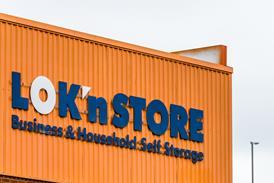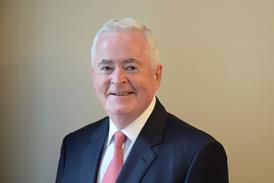DTZ Asia Pacific chief CY Leung reveals all on Far Eastern markets to Claer Barrett
Easily the most powerful man in Hong Kong’s real estate market, CY Leung is now leading the charge into the markets in mainland China.
In December DTZ bought out the remaining 70% of DTZ North Asia, of which Leung was chairman. The £23.4m deal marked his ascension to DTZ’s executive board, gave him a new role as chairman of DTZ Asia Pacific and increased his stake in the firm to a mere 2.6m shares.
His empire stretches far . Close to 2,000 people are employed in 13 cities, 11 of which are in mainland China, and the remaining two in Hong Kong and Taiwan.
The challenge is now to capture the huge amount of cross-border interest in emerging Chinese markets and capitalise on the weight of Chinese money looking to find a home in foreign real estate investments.
‘China is probably the one country that gives you literally dozens of cities that, so far, are untouched by investors,’ says Leung. ‘It’s not for the lack of opportunities or appetite, just the mere fact that you only have 24 hours in a day.’
Since taking up his new appointment, Leung says he has clocked up ‘thousands of air miles’, travelling across mainland China, as well as India, Japan, Australia and New Zealand not to mention London, the US and Hong Kong.
Market experts describe Leung as ‘connected’, referring to his political links. He is the convenor of the Executive Council of Hong Kong, and was elected as a member of the National Standing Committee of the Chinese People’s Political Consultative Conference in 2003.
Leung is also a non-executive director of large real estate companies Shui On Land and Keppel Corporation. But his rivals believe the challenge for DTZ is to build on its corporate advisory business and beat a path for investors looking to crack mainland China.
‘I’ve been running around in mainland China for 30 years,’ Leung says. ‘What we can offer developers and clients is understanding and knowledge of the market, and where one city stands in relation to the others.’
Foreign currency
Leung says cross-border investors clamouring the hardest to enter the Chinese market are Middle Eastern, Korean and Australian buyers, followed by European and south-east Asian money. In January, DTZ diversified into fund management, setting up a £400m fund with Middle Eastern investors.
‘Investors are definitely moving into mainland China and people are prepared to buy sites for all kinds of development,’ he says. ‘Foreign buyers have learned their way around the Chinese planning system, and the talent pool is getting bigger it is possible to recruit good project managers and architects.’
However, it is still a hard market to operate in. China’s new Land Appreciation Tax, a form of development land tax, is being ‘vigorously enforced’, according to Leung, and this is causing more problems in the market than reduced profit margins.
‘At any one time there are dozens of deals where letters of intent have been signed, but firms are waiting for three or four months to obtain government clearance,’ he says, adding that developers use the time lag to carry out due diligence and title checks. But the property market drives on with the same strength as the burgeoning Chinese economy.
‘The banks are fighting each other to lend money to real estate, and markets remain very liquid,’ Leung says. ‘We definitely have a huge amount of foreign capital waiting to be invested in the mainland. The Chinese government also realises that the domestic economy is generating huge investor appetite for real estate.’
So when is the west going to see the weight of money that Chinese investors are tipped to offload into foreign real estate investment?
‘What potential investors are currently lacking is a degree of confidence,’ he says. ‘Firms like us are there to provide guidance on how to choose between the UK, Europe or the US, and how to go about it.
‘Also, it’s not about getting one person to make a decision, it’s a whole raft. There are many layers of decision-making in Chinese firms, and it defers the decision to take money out of the country.’ And with that, Leung is off to catch his next flight.
Hotspots: How Leung rates other Asia Pacific markets
Korea
‘Yields on Korean grade A offices have moved in from 7.5% to 5% in the last two years, although take-up in Seoul is not very high. There is a huge shot of new projects emerging.’
Singapore
‘It is probably the hottest market in terms of investment transactions and development activity. The economy is performing well,
and the government seems to be taking a friendlier attitude to the real estate market.’
Vietnam
‘It is a few years behind mainland China, and is criticised for only having “one and a half cities” Ho Chi Minh and Hanoi. Hanoi is the half. Unlike China and India, Vietnam doesn’t really give you the mass. Big investors and developers are not going there.’
Hong Kong
‘Grade A office rents have more than doubled in the last three years. Leases are short typically three years so people with lease expiries will have to do their budgets again. New development opportunities will come from former industrial locations, chiefly in East Kowloon and Kowloon Bay.’
Global July 2007
- 1
- 2
- 3
- 4
- 5
- 6
- 7
- 8Currently reading
The Mainland man


























No comments yet